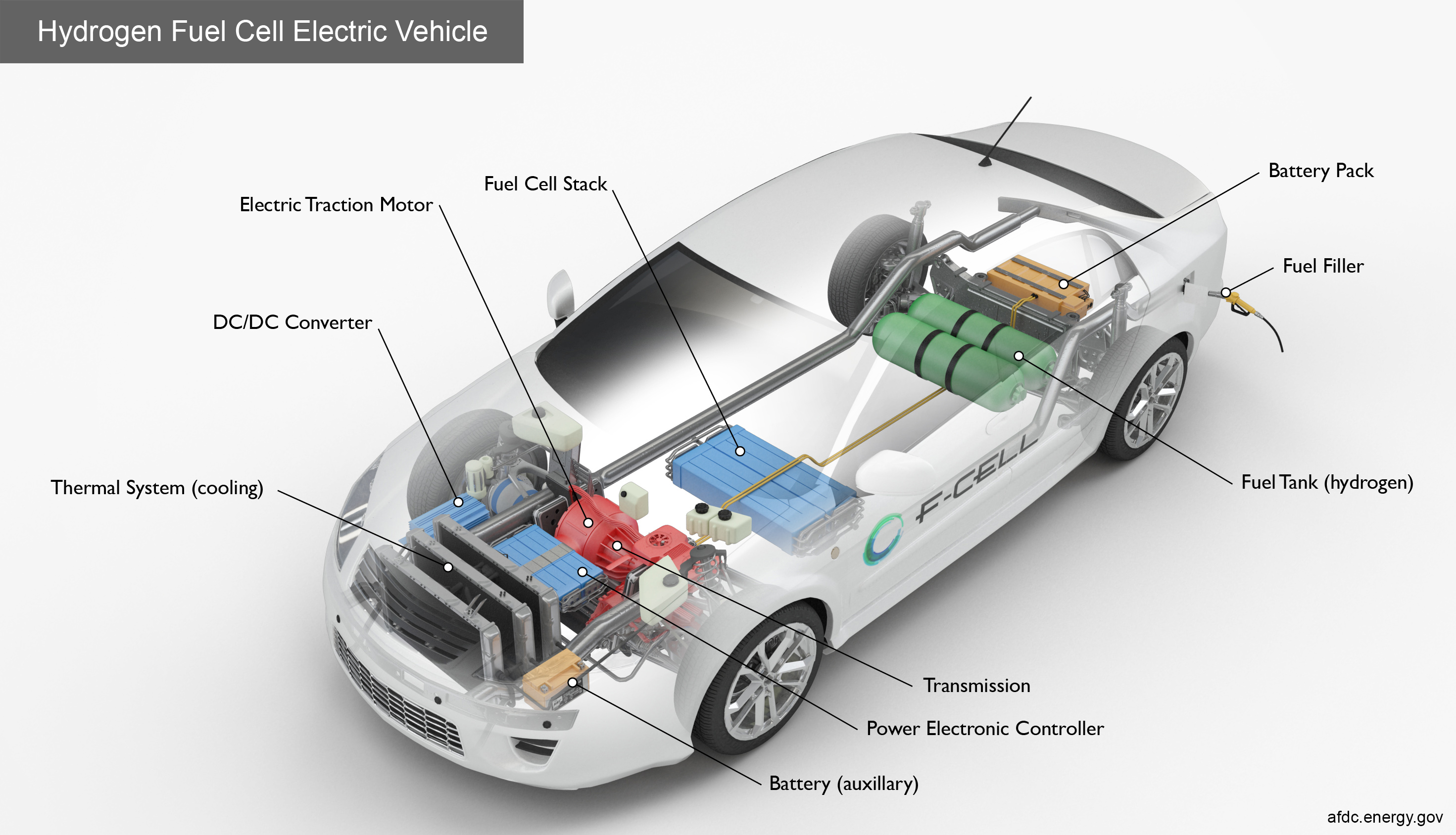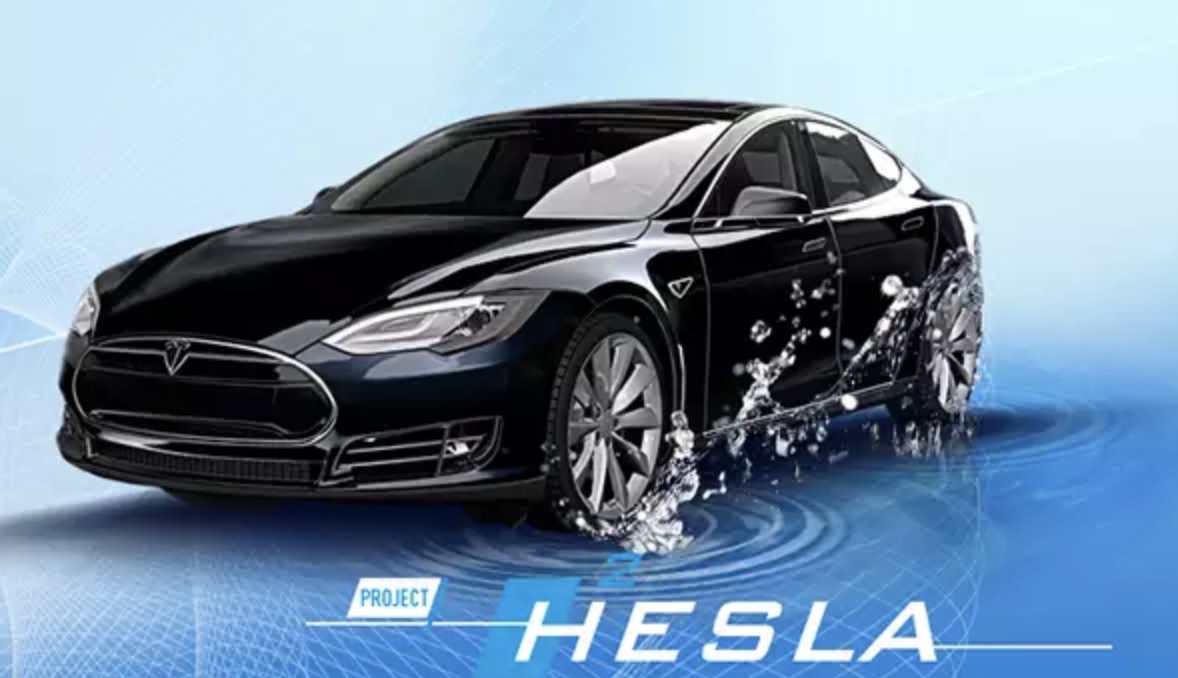GAME OVER: Hydrogen Tesla Will Eventually Replace Electric Tesla

Thursday, December 2, 2021 | Chimniii Desk
Key Highlights
- When compared to regular gasoline vehicles, hydrogen vehicles have the significant advantage of being powered by a renewable energy source.
- While it is true that filling a hydrogen vehicle is faster, how many hydrogen stations do we currently have?
- Real-world hydrogen and electric vehicle prototypes are now on the market.
Advertisement

The Jetsons gave us a vision of the future, and the most of it has already come true. Video calls, robotic vacuum cleaners, and robotic house helpers are all available. The only thing remaining is the fabled Jetson automobile.
That, too, may become a reality with the introduction of hydrogen and electric automobiles! However, which vehicle type should we anticipate more, hydrogen-powered or electric?
This article will assist you in determining which vehicle to purchase in the future. Which is better, hydrogen or electricity? Continue reading to the conclusion of the article as we break down each type of car into its merits and cons and show you the models already on the market that will awe you!
Advertisement
How do hydrogen and electric automobiles operate?
 Hydrogen Fuel Cell Car
Hydrogen Fuel Cell Car
 Hydrogen Fuel Cell Car
Hydrogen Fuel Cell CarFor some time now, while discussing the future of passenger automobiles, hydrogen vehicles have been mentioned. Francois Isaac de Rivaz, a French inventor, invented the first hydrogen-oxygen engine and ignited it with an electric spark.
Today, we use fuel cells, but the same ingredients are used to initiate a chemical reaction. That is also why these vehicles are referred to as hydrogen fuel cell electric automobiles. However, why would one use hydrogen to power a car?
Since 1807, hydrogen has been used to power motors. Hydrogen is the most plentiful element in the universe. A hydrogen cell fuel cell vehicle is equipped with a hydrogen tank that supplies high-pressure hydrogen gas to the fuel cell. In this chemical process, hydrogen reacts with oxygen.
This chemical reaction is powerful enough to generate electricity, which is used to power the motors that power these vehicles. To say that hydrogen is a clean fuel is an understatement, as the sole byproduct of hydrogen vehicles is, you guessed it, water!
Electric cars operate similarly to gasoline automobiles in that they also rely on electricity to power the vehicle's motor. Rather than a chemical reaction, this electricity is obtained directly from the grid and is used to charge a lithium-ion battery.
Exactly the same way that any other electrical item operates. Which one is superior now that we understand how they work? Continue reading to learn more. Why might hydrogen-powered automobiles be the next best thing?
Advertisement
Hydrogen cars have already made their way onto UK roads, and we'll show you some stunning examples at the conclusion of the film. However, we must first determine why hydrogen cars are superior to the rest.
When compared to regular gasoline vehicles, hydrogen vehicles have the significant advantage of being powered by a renewable energy source. You will never run out of hydrogen, as it is the most abundant element in the universe.
As with electric cars, they lack an internal combustion engine in favour of a fuel cell, as previously stated. They emit no greenhouse gases, making them environmentally friendly. Water is the sole substance exhaled.
A full hydrogen tank has a range of 300 miles, putting hydrogen automobiles on par with many conventional vehicles. Petrol and diesel are becoming scarce, and obtaining energy from them is extremely difficult and inefficient.
On the other hand, hydrogen fuel cells outperform them in terms of energy efficiency. Electric automobiles derive their energy from an onboard battery that must be recharged. In comparison, hydrogen cars are propelled by an onboard generator that runs on hydrogen.
This means that a hydrogen vehicle offers the additional benefit of significantly faster refilling. A hydrogen vehicle may be fully charged in three to five minutes, making it more convenient to use than an electric vehicle.
As with regular cars, you pull up to a pump, fill up for two minutes, pay, and drive away! With electric vehicles, you must wait potentially hours for the battery pack to be replenished with the same level of range.
However, getting a hydrogen pump is difficult, but this will soon change as more investments and automobiles are constructed. Unfortunately, hydrogen cars have a long way to go. While hydrogen cars appear to be the obvious choice on paper, they still have a long path ahead of them.
While hydrogen is plentiful, it does not occur naturally. To extract and push liquid hydrogen into fuel pumps, a significant amount of energy and current production utilising fossil fuels is required. The majority of energy is lost during the conversion of hydrogen fuel to electricity, rendering hydrogen inefficient.
Advertisement
You initially lose energy during the electrolysis process of transforming one form of energy to hydrogen. When energy is compressed into fuel tanks, more energy is lost. Additionally, energy is lost when the fuel tank converts hydrogen to electricity.
In other words, if 100 watts of electricity were utilised to initiate the process, you will finish up with only 38 watts at the conclusion. By contrast, electric vehicles derive their power directly from their battery packs.
The wires carry energy from the source to the battery pack, and thus, if you start with the same 100 watts of power, after losses associated with the grid connection, charging and discharging lithium batteries, and using the electricity to propel the car forward, you still have 80 watts of power, compared to the hydrogen car's 38 watts.
Clearly, electric vehicles win this round! While it is true that filling a hydrogen vehicle is faster, how many hydrogen stations do we currently have? There are ten million electric vehicles on the road worldwide, and as demand grows, charging facilities for them are springing up daily.
In the United States alone, there are 40,000 electric vehicle charging stations. Additionally, the government is providing grants for the installation of residential charging stations. Regrettably, there are now only 45 hydrogen filling stations accessible.
Hydrogen cars may promise quick refilling, but what good is speed if you can't find a refuelling station? With the introduction of newer models and potential investments, the number of hydrogen cars may increase, which could result in the addition of more fueling stations.
However, as previously stated, there is a long way to go. Regrettably, Volkswagen has ceased development of hydrogen-powered vehicles. They feel the technology has no future in the automotive sector, owing to the fact that a fuel cell electric vehicle consumes around three times as much energy every mile driven as a battery-electric vehicle.
Unfortunately, hydrogen is also rather expensive. A full charge of an electric automobile costs roughly $80, compared to the average cost of $9 to fully recharge an electric car. Woah! That is a significant difference!
The models that are currently available on the market After listing the majority of the advantages and cons of hydrogen and electric vehicles, we can only conclude one thing. Conventional automobiles, whether gasoline or diesel, will soon become obsolete.
However, hydrogen or electricity? Ultimately, only time will tell. For the time being, let us demonstrate what we have been promising since the beginning. Real-world hydrogen and electric vehicle prototypes are now on the market. Consider the Toyota Mirai II.
It has a range of 650 kilometres and is powered by an electric motor producing 184 horsepower. The stunning Sedan, which we believe looks best in royal blue, runs on hydrogen and emits no carbon dioxide. Clearly, when it comes to modern autos, there is no compromise on style.
Additionally, there is the 5th generation Hyundai NEXO, which has a range of 756 kilometres and provides you with the SUV alternative you didn't realise your family needed. BMW is still investigating hydrogen-powered vehicles, and we're excited to see what they come up with.
It would be remiss of us not to show you at least one electric vehicle as well. After all, there are more than 200 electric vehicle models on the market. Porsche's first all-electric vehicle, the 2020 Porsche Taycan, will debut in 2020. This beauty is equipped with a two-speed transmission for increased acceleration and range.
It accelerates from zero to sixty miles per hour in as low as 2.6 seconds, faster than a Bugatti Chiron. Switching to ecologically friendly autos does not mean sacrificing performance or quality. Now that you understand how hydrogen and electric automobiles work, as well as their respective pros and disadvantages.
Additionally, you've seen some quite fascinating models of each type of automobile. Which of the two do you prefer and why?
Advertisement